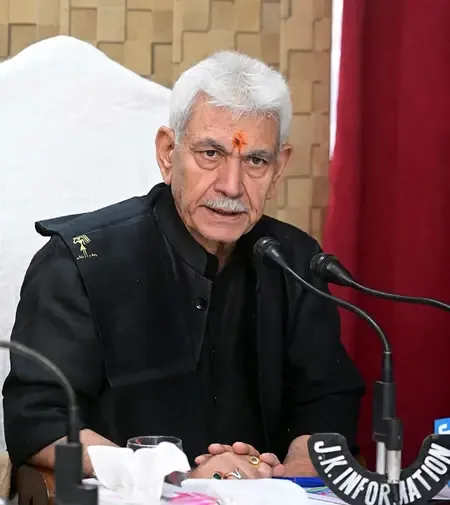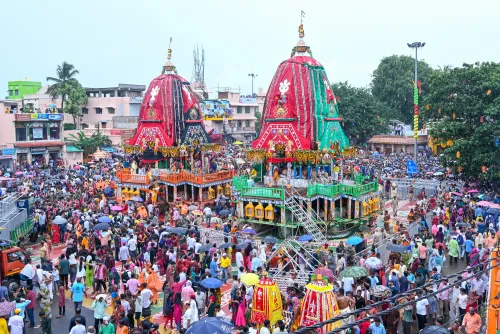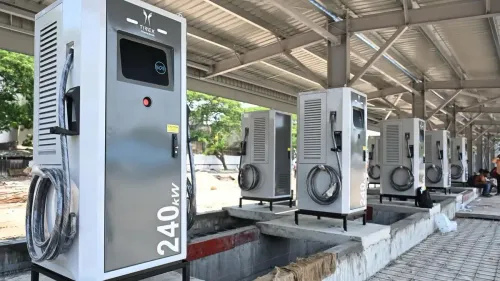What Steps is J&K LG Taking for Amarnath Yatra Security?

Synopsis
Key Takeaways
- Unified command meeting led by Lt Governor Manoj Sinha.
- Focus on Amarnath Yatra security and current situation.
- Emphasis on dismantling the terror ecosystem.
- Recent terrorist attacks have escalated security measures.
- Ceasefire agreement reached on May 12, 2023.
Srinagar, May 20 (NationPress) The Lt Governor of Jammu and Kashmir, Manoj Sinha, convened a meeting of the unified command on Tuesday to assess the security measures for the upcoming annual Amarnath Yatra, alongside the prevailing situation in the Union Territory. The gathering included the Chief Secretary and senior officials from the Army, police, and other agencies.
According to sources, the meeting evaluated the current conditions within the Union Territory and the security preparations for the annual Amarnath Yatra, which is set to begin on July 3 this year.
“The discussions also addressed the repercussions of the recent Pahalgam terror attack and the developments following ‘Operation Sindoor’ in Jammu and Kashmir,” the source stated.
The Lt Governor stressed the necessity for the Army, police, and paramilitary forces to thoroughly eradicate the terror ecosystem in Jammu and Kashmir.
In light of the April 22 terror incident in Baisaran meadow, where 26 civilians tragically lost their lives due to an attack by LeT terrorists, joint operations by the Army, police, and other security forces have intensified against terrorists and their associates throughout J&K.
Last week, six terrorists were eliminated in two sequential operations in the Shopian and Pulwama districts, including the operational commander of the LeT.
In addition to diplomatic initiatives, India has executed precision-guided strikes targeting terrorist bases deep within Pakistan, including locations such as Muridke near Lahore, Kotli, and Muzaffarabad in Pakistan-occupied Jammu and Kashmir (PoJK).
In retaliation, Pakistan has engaged in indiscriminate mortar shelling along the Line of Control (LoC) and the international border (IB) in J&K.
Over 200 properties were damaged, affecting civilian structures in Poonch, Rajouri, Baramulla, and Kupwara districts, forcing numerous border residents to evacuate.
These displaced individuals have yet to return fully to their homes as security forces continue to address the risks posed by unexploded mortar shells.
On May 12, the Director Generals of Military Operations (DGMOs) from both nations reached an agreement for a ceasefire, leading to a cessation of hostilities.
While the ceasefire remains intact, India has made it clear that this understanding is contingent upon Pakistan refraining from facilitating terrorist activities against India.









